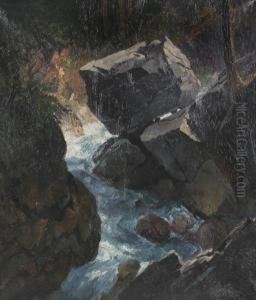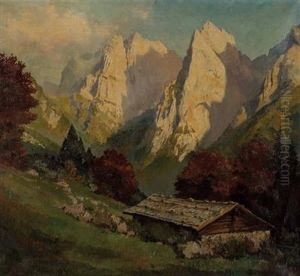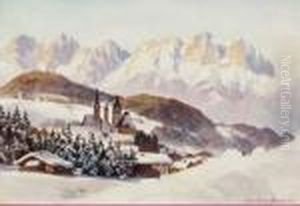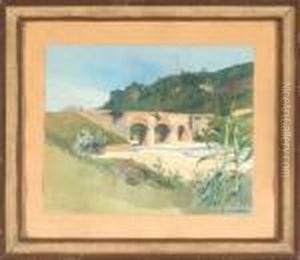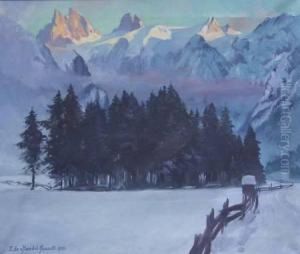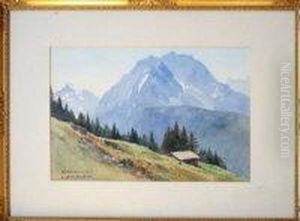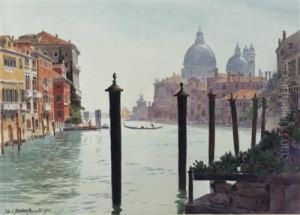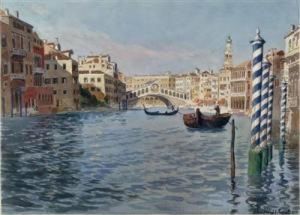Eduard, Freiherr Von Handel-Mazetti Paintings
Eduard, Freiherr von Handel-Mazetti was an Austrian novelist and playwright known for his explorations of the human spirit and condition through his literary works. Born into the Austrian nobility in 1887, Handel-Mazetti's upbringing in a wealthy and cultured environment deeply influenced his artistic inclinations and themes in his writing. He was part of the vibrant cultural scene of early 20th century Vienna, a hub for artists, writers, and intellectuals that shaped much of Western art and literature.
Educated in the classics and fluent in several languages, Handel-Mazetti had access to a wealth of literary and philosophical works that informed his own writings. His novels and plays often delve into complex moral and ethical questions, exploring themes of love, honor, and societal expectations. His works are characterized by a deep psychological insight and a keen observation of the human condition, making him a significant figure in Austrian literature.
Despite his noble heritage, Handel-Mazetti's works often critiqued the rigid social hierarchies and norms of his time, reflecting a progressive mindset that was not always well-received in conservative circles. Throughout his career, he maintained a focus on the individual's struggle against societal constraints, a theme that resonated with many readers and fellow writers.
The interwar period and the aftermath of World War I significantly impacted Handel-Mazetti's worldview and writings, as it did for many of his contemporaries. The disillusionment and sense of loss felt across Europe found expression in his later works, which became darker and more introspective.
Eduard, Freiherr von Handel-Mazetti passed away in 1953, leaving behind a legacy of literary works that continue to be studied for their contribution to Austrian and European literature. His exploration of the human psyche, combined with his critical view of society, makes his works relevant even in contemporary discussions on literature and philosophy.
